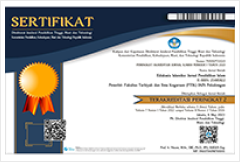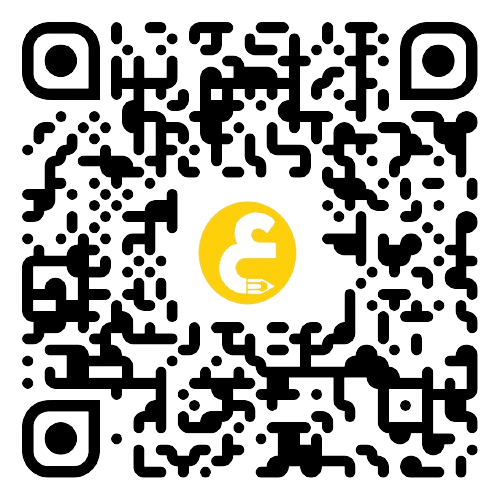Pendekatan Bid’ah dan Ijtihad dalam Pembelajaran: Mengoptimalkan Kemampuan Berpikir Kreatif Peserta Didik
DOI:
https://doi.org/10.28918/jei.v3i2.1688Keywords:
Bidâah, Ijtihad, Creative Thinking Skills, Ruh, Nafs, Qalb, AqlAbstract
This paper offers the concept of creative education by employing an Islamic approach. In the Islamic perspective, creative education highlights two concepts, namely: bidah and ijtihad. The meaning of these two concepts leads to several debates. This present study, therefore, tries to describe both the concepts so as to develop students creative thinking skills in teaching and learning processes. This study promotes several endeavors that can be done by teachers to enhance the skills. Firstly, the teachers should be able to synergize their students potential in terms of ruh, nafs, qalb, and aql so that they emerge as individuals with the power of mujtahid. Secondly, they have to be capable of providing their students with an ijtihadi stimulus that may trigger the students critical thinking skills by stimulating them to address questions. Thirdly, the teachers are expected to provide their students with chances of having ijtihad to explore lots of received information and new knowledge and convey their ideas and thoughts in a public space. Another effort is that they are expected to be able to manage meaningful opportunities to their students in order to perform creative thinking. It illustrates that the students may deliver a wide array of perspectives for a certain issue discussed. Finally, the teachers demonstrate positive appreciation for all the students responses by regarding the principle that they attain two points for their appropriate response and one point for their inappropriate one dealing with the result of the students ijtihad
References
Al-Karasneh, S. M., & Saleh, A. M. J. (2010). Islamic perspective of creativity: A model for teachers of social studies as leaders. Procedia – Social and Behavioral Sciences, 2(2), 412-426. https://doi.org/10.1016/j.sbspro.2010.03.036
Al-Mazeidy, Z. M. (1993). Muqoddimah fi Manhaj al-Ibda’: Ro’yah Islamiyah. Mesir: Dar al-Wafa’ Littiba’ah Wan Nasyr.
Astutik, P. P. (2016). Integrasi Penguatan Pendidikan Karakter (Ppk) dan Higer Order Thinking Skills (HOTS) dalam Pembelajaran Tematik SD. Seminar Nasional Pendidikan – Fakultas Ilmu Pendidikan Universitas Negeri Malang Sinergitas Keluarga, Sekolah, dan Masyarakat dalam Penguatan Pendidikan Karakter, 343-354.
Dalhat, Y. (2015). The Concept of al-Ruh (Soul) in Islam. International Journal of Education and Research, 3(8), 431-440.
Daryono & Angraheni, D. (2018). BERBAGAI BERKAH BID’AH NYADRAN (INOVASI PEMBELAJARAN AGAMA) DALAM BUDAYA ISLAM JAWA. CULTURE, 5(1), 1-25.
Hadziq, A. (2005). Rekonsiliasi Psikologi Sufistik dan Humanistik. Semarang: Rasail.
Has, A. W. (2013). IJTIHAD SEBAGAI ALAT PEMECAHAN MASALAH UMAT ISLAM. Epistemé: Jurnal Pengembangan Ilmu Keislaman, 8(1), 89-112. http://dx.doi.org/10.21274/epis.2013.8.1.89-112
Hasan, M. A. (2003). Perbandingan Mazhab. Jakarta: Raja Grafindo Persada.
Ismail, M., (2013). Peranan Psikolinguistik dalam Pembelajaran Bahasa Arab. At-Ta’dib, 8(02), 281-297.
Mustakim, Z. (2017). Strategi dan Metode Pembelajaran (Edisi Revisi). Yogyakarta: Matagraf.
Mustaqim, M. dkk. (2012). Bid’ah as an Approach in Creating Creative and Innovative Muslim Society. Proceeding of International Conference on Islamic Leadership-2 (ICIL).
Musthofa, A., & Al-Najjar, A. H. (1989). Al-Mu’jam Al-Wasīţ. Turki: Dar al-Da’wah.
Nisa, N. C., Nadiroh, & Siswono, E. (2018). Kemampuan Berpikir Tingkat Tinggi (Hots) Tentang Lingkungan Berdasarkan Latar Belakang Akademik Siswa. PLPB: Jurnal Pendidikan Lingkungan dan Pembangunan Berkelanjutan, XIX(2). https://doi.org/10.21009/PLPB.192.01
Rifai, M. (2003). Fiqh. Semarang: CV Wicaksana
Sweidan, T. M. & al-Adlouni, M. A. (2014). Mabadi’ al-Ibda’. Kuwait: Syarikat al-ibda’ al-Khaliji.
Ulwiyah, N. (2015). LANDASAN PSIKOLOGI DAN AKTUALISASINYA DALAM PENDIDIKAN ISLAM. Religi: Jurnal Studi Islam, 6(1), 76-99.
Yousif, W. (1999). Creativity in Islamic Thought: A Comparative Analysis. Master Thesis, International Islamic University Malaysia.
Zaduqisti, E. (2010). Problem-Based Learning (Konsep Ideal Model Pembelajaran untuk Peningkatan Prestasi Belajar dan Motivasi Berprestasi). Forum Tarbiyah, 8(2), 181-191.
Zahra, M. A. (t.t). Ushul Fiqh. Damaskus: Daar al-Fikr.






















